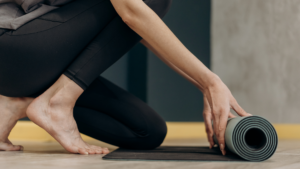In the quiet hours of the night, the aftermath of a panic attack can cast a shadow over the prospect of restful sleep. For those who have experienced the grip of panic, the quest for a peaceful night’s sleep can become a daunting journey. However, with mindful strategies and a commitment to self-care, it’s possible to transform the sleep experience into a haven of calmness. This article explores effective ways to unwind and relieve the effects of panic, paving the way for rejuvenating sleep.
Establish a Calming Bedtime Routine
Begin the transition from wakefulness to sleep with a calming bedtime routine. Engage in activities that promote relaxation, such as reading a soothing book, practicing gentle stretches, or listening to calming music. This signals to the mind and body that it’s time to unwind.
Mindful Breathing and Meditation
Incorporate mindful breathing or meditation techniques into your pre-sleep routine. Deep, intentional breaths can help calm the nervous system and alleviate residual tension from the panic attack. Guided meditation or visualization exercises can also create a serene mental space.
Create a Comfortable Sleep Environment
Ensure your sleep environment is conducive to relaxation. Dim the lights, adjust the room temperature, and invest in comfortable bedding. Minimize potential disturbances, such as electronic devices or excessive noise, to create a tranquil space dedicated to sleep.
Utilize Aromatherapy
Harness the power of aromatherapy to promote relaxation. Scents like lavender, chamomile, or bergamot can have calming effects. Consider using essential oils, diffusers, or scented candles to infuse your sleep environment with soothing fragrances.
Limit Stimulants Before Bed
Be mindful of your pre-sleep diet by limiting stimulants such as caffeine or heavy meals close to bedtime. Opt for calming herbal teas like chamomile or valerian root, which can have a mild sedative effect.
Journaling for Release
Channel your thoughts onto paper through journaling. This can be a therapeutic way to release any lingering anxieties or thoughts from the panic episode, preventing them from intruding on your sleep.
Progressive Muscle Relaxation
Engage in progressive muscle relaxation exercises to release physical tension. Starting from your toes and working your way up, consciously tense and then relax each muscle group. This technique can enhance overall body relaxation.
Seek Professional Support
If panic attacks significantly impact your sleep, consider seeking support from a mental health professional. Cognitive-behavioral therapy (CBT) and other therapeutic approaches can provide tailored strategies to manage panic and improve sleep.
Establish Consistent Sleep Patterns
Create consistency in your sleep schedule by going to bed and waking up at the same time each day. This helps regulate your body’s internal clock, making it easier to fall asleep and wake up naturally.
Transforming sleep after a panic episode requires patience, self-compassion, and a commitment to holistic well-being. By incorporating these strategies into your nightly routine, you can cultivate a sleep environment that promotes relaxation and rejuvenation. Remember, the journey to restful sleep is a gradual process, and each intentional step brings you closer to a night of undisturbed tranquility.
Also Read: Wake up refreshed and pain free the art of perfect sleep positions






